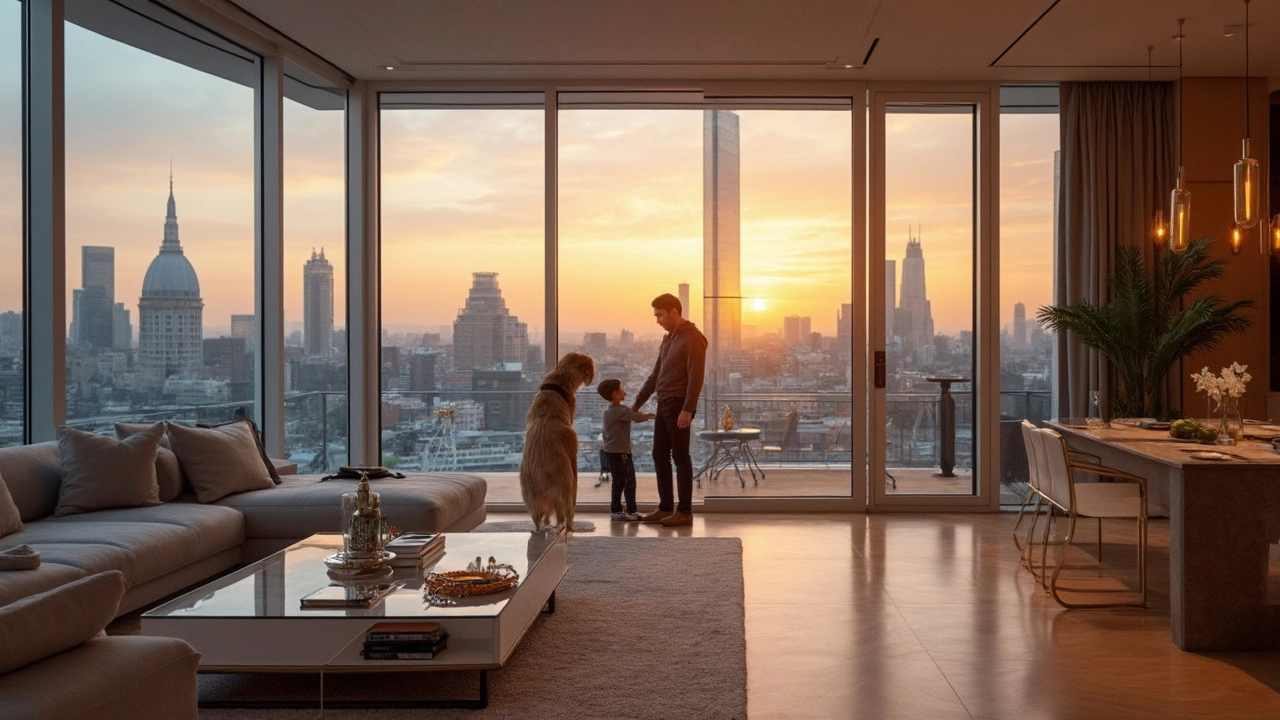Luxury Apartment Size – What Makes a High‑End Flat Feel Spacious
When you start looking at luxury apartments, the first question isn’t always about location or finishes – it’s about space. A big living area, a master suite that doesn’t feel cramped, and a kitchen you can actually move around in are all part of the luxury feel. But what square footage actually qualifies as “luxury” can be blurry, especially in cities where every square foot costs a fortune.
In this guide we’ll break down the most common size ranges you’ll see on the market, explain why certain layouts work better for different lifestyles, and give you a quick checklist to decide if a particular flat meets your standards before you sign any paperwork.
Typical Square Footage Ranges for Luxury Apartments
In the UK, luxury apartments are usually measured in both square metres and square feet. Here’s a quick look at what you’ll find across most high‑end developments:
- Studio or 1‑Bedroom (30‑50 m² / 320‑540 ft²): Perfect for single professionals who want premium finishes but don’t need a lot of room. Expect an open‑plan layout with a dedicated sleeping nook.
- 2‑Bedroom (60‑80 m² / 650‑860 ft²): The sweet spot for couples or small families. A separate living area, a master bedroom with en‑suite, and a second bedroom that can double as a home office.
- 3‑Bedroom (90‑120 m² / 970‑1,290 ft²): Ideal for families or those who like extra space for guests. You’ll see larger kitchens, sometimes a double living room, and generous storage.
- Penthouse or Duplex (150 m²+ / 1,600 ft²+): The top tier of luxury. Roof terraces, floor‑to‑ceiling windows, and multiple levels give you the feeling of a private home in the sky.
Remember, the numbers are guidelines, not hard rules. A well‑designed 55 m² one‑bedroom can feel more spacious than a 70 m² flat with a cramped floor plan.
How to Pick the Right Size for Your Lifestyle
First, think about how you use each room. If you work from home, you’ll need a dedicated office space – that might push you toward a two‑bedroom layout even if you’re single. If you love entertaining, a larger kitchen and open‑plan living area are non‑negotiable.
Second, consider the trade‑off between size and location. In central London, a 70 m² luxury flat might cost the same as a 100 m² unit in a suburb. Decide whether you value a walk to the tube or extra square footage.
Third, look at the building’s amenities. Some high‑rise developments offer shared lounges, gyms, and rooftop gardens that can offset a smaller private space. If you’ll spend a lot of time in these common areas, a slightly smaller flat could still feel luxurious.
Finally, run the numbers on storage. Luxury apartments often come with built‑in wardrobes, but you may need additional shelving or a storage locker. Sketch a rough floor plan on paper or use a free app to see if your furniture fits comfortably.
By asking these practical questions, you’ll avoid falling for a “big” label that doesn’t actually match your day‑to‑day needs.
Ready to start your search? Keep this size guide handy, compare listings side‑by‑side, and don’t be shy about asking the developer for floor‑plan specifics. The right luxury apartment size isn’t just about square meters – it’s about how the space works for you.

Luxury Apartment Size: How Big is 'Big'?
Trying to figure out how big a luxury apartment actually is? You’re not alone—size is one of the biggest selling points when it comes to upscale living, but the numbers can really surprise you. This article explains what square footage to expect, how layouts make a difference, and why two luxury apartments of the same size can feel totally different. Get tips for spotting real value beyond just a floor plan. By the end, you’ll know exactly what makes an apartment not just big, but truly ‘luxury’ in every square foot.